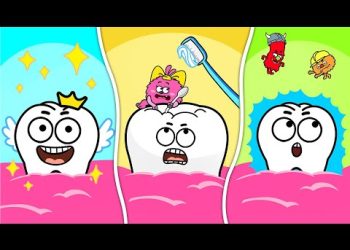Introduction
High blood pressure, often dubbed the “silent killer,” can take a toll on your body for years without any noticeable symptoms. Nearly half of the adults grapple with this issue, unaware of its potential health risks. Even though it’s a common issue, it is largely preventable through mindful dietary choices. In this blog post, we’ll explore some foods that exacerbate high blood pressure, and provide tips on how to keep it in check.
The Harmful Impact of Table Salt
Table salt is a primary culprit in raising blood pressure due to the imbalance it creates between sodium and essential minerals like potassium and magnesium in the body. Consuming a lot of table salt results in high sodium levels without accompanying natural minerals, prompting the body to retain more water, increasing blood volume and amplifying blood pressure.
Beneficial Alternatives to Table Salt
While table salt is detrimental, natural sea salt or Himalayan salt provides a healthier alternative as they contain a variety of minerals that help maintain proper electrolyte balance. Minerals such as potassium, calcium, and magnesium work together to balance fluids effectively, promoting better heart health.
The Caffeine Conundrum
Caffeine, primarily found in coffee, can trigger short-term spikes in blood pressure, as it blocks adenosine, increasing adrenaline levels. For those sensitive to caffeine, the effects can be even more pronounced, impacting cardiovascular health over time. Replacing coffee with herbal teas can mitigate these effects.
Refined Sugars and Their Effects
Consuming high amounts of refined sugars in sodas and snacks causes blood sugar spikes, compelling the pancreas to release more insulin. Over time, this can lead to sodium retention and other health issues such as weight gain, heart disease, and insulin resistance – all risk factors for hypertension.
Avoiding Processed Foods
Processed foods, which offer convenience, often come laden with sodium and unhealthy sugars. Regularly consuming these can keep you well above the recommended sodium intake, contributing to higher blood pressure and missing out on essential nutrients like potassium and fiber crucial for cardiac health.
Sugary Beverages: A Threat to Heart Health
Sugary beverages are among the largest contributors to added sugars in our diet, linked to insulin resistance, obesity, and consequently, hypertension. Efforts to maintain a healthy weight through diet and exercise pay dividends in controlling blood pressure.
The Perils of Salty Snacks
Snacks such as chips and pretzels are often consumed in large amounts without consideration of their sodium content. This regular overconsumption of sodium can not only spike blood pressure but also overburden the kidneys, leading to further complications including chronic kidney disease.
Conclusion
Monitoring your intake of these detrimental food items and making informed dietary choices can play a significant role in maintaining optimal blood pressure levels. By embracing a diet rich in whole foods and natural alternatives, you support your cardiovascular health and overall well-being.
Thank you for reading. Stay proactive about your health and join us next time for more insightful tips on leading your best life.











